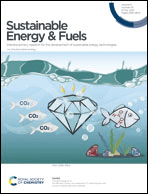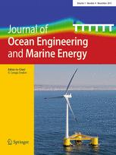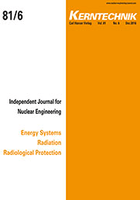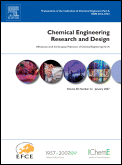
Revista Facultad de Ingenieria-Universidad de Antioquia
Scope & Guideline
Unlocking Potential Through Open Access Engineering Research.
Introduction
Aims and Scopes
- Engineering Innovations and Applications:
The journal emphasizes innovative engineering solutions across various disciplines, showcasing research that applies new technologies and methodologies to solve practical engineering problems. - Sustainable Practices and Environmental Impact:
A core focus is on sustainability within engineering practices, including studies on waste management, renewable energy, and environmental assessments, aiming to promote ecological balance. - Computational Modeling and Simulation:
The use of computational tools and simulations in engineering is a significant area, with research exploring fluid dynamics, structural analysis, and other modeling techniques to enhance understanding and design. - Materials Science and Engineering:
Research on advanced materials, including their properties, applications, and innovative uses in engineering contexts, is a prominent theme, reflecting the journal's commitment to material advancements. - Interdisciplinary Research:
The journal encourages interdisciplinary approaches that integrate engineering with other fields such as environmental science, computer science, and health, fostering a broader understanding of complex challenges.
Trending and Emerging
- Renewable Energy and Sustainability:
There is a marked increase in research related to renewable energy sources, energy efficiency, and sustainability practices, reflecting a global push towards greener technologies and practices. - Smart Technologies and Automation:
Emerging themes in smart technologies, including IoT applications, smart grids, and automation in engineering processes, are gaining traction, indicating a focus on integrating technology with engineering practices. - Environmental and Climate Change Studies:
Research addressing climate change impacts, environmental management, and ecological restoration is becoming more prevalent, aligning with global priorities for sustainable development. - Advanced Materials and Nanotechnology:
There is a rising interest in advanced materials, particularly nanomaterials and their applications in various engineering fields, showcasing innovation and exploration of new material properties. - Data Science and Machine Learning Applications:
The integration of data science, machine learning, and AI in engineering research is trending, reflecting the increasing importance of data-driven decision-making and predictive modeling in engineering disciplines.
Declining or Waning
- Traditional Energy Sources:
There has been a noticeable decrease in research focused on traditional fossil fuel-based energy systems, as the emphasis shifts towards renewable energy sources and sustainability. - Basic Theoretical Studies:
Research that focuses solely on fundamental theoretical aspects without practical applications is becoming less common, as the journal favors studies that demonstrate real-world applications and impacts. - Conventional Construction Materials:
Studies centered on conventional construction materials are waning, with a growing interest in alternative and sustainable materials that address environmental concerns. - Local or Regional Studies:
Research that is limited to local or specific regional contexts without broader implications is less frequently published, as there is a trend towards studies with wider applicability or global relevance. - Purely Descriptive Research:
There is a decline in purely descriptive studies that do not offer innovative insights or solutions, as the journal increasingly favors research that provides actionable conclusions and advances engineering practices.
Similar Journals

International Journal of Energy and Environmental Engineering
Empowering Sustainable Futures through Innovative ResearchInternational Journal of Energy and Environmental Engineering, published by SPRINGER HEIDELBERG, is a leading platform for innovative research in the fields of energy and environmental engineering. With an ISSN of 2008-9163 and an E-ISSN of 2251-6832, this journal is dedicated to advancing knowledge and technology that intersects both energy and environmental disciplines. Recognized in the Q2 category for 2023 in both Energy (miscellaneous) and Environmental Engineering, this interdisciplinary journal aims to address global challenges in energy sustainability and environmental protection. The journal also boasts strong Scopus rankings, standing at Rank #73 in Environmental Science and Rank #28 in General Energy, highlighting its influential role within the academic community. Researchers, professionals, and students are encouraged to contribute and engage with cutting-edge studies that push the boundaries of knowledge and innovation in energy and environmental engineering.

Sustainable Energy & Fuels
Unleashing Potential for Environmental SustainabilitySustainable Energy & Fuels is a leading journal published by the Royal Society of Chemistry, dedicated to advancing knowledge in the fields of energy engineering, fuel technology, and renewable energy solutions. With its ISSN of 2398-4902 and notable Q1 status in both Energy Engineering and Power Technology as well as Fuel Technology, this journal ranks impressively in the Scopus database, ensuring a strong platform for disseminating impactful research. The journal spans a comprehensive scope aimed at addressing the global challenges of sustainable energy, including innovative methodologies and technologies that promote environmental sustainability. Although it operates under a traditional access model, the journal is committed to providing high-quality content that engages researchers, professionals, and students alike. With significant contributions expected through 2024, Sustainable Energy & Fuels stands at the forefront of facilitating scholarly communication, inspiring advancements in energy technologies that align with sustainability goals.

Engineering Reports
Fostering innovation in engineering with open-access insights.Engineering Reports is a premier open-access journal published by Wiley, dedicated to advancing the fields of Engineering and Computer Science. Since its inception in 2019, this journal has rapidly gained recognition, achieving a commendable Q2 ranking in both the engineering and computer science categories in 2023, evidencing its impactful contributions to the scientific community. With an impressive Scopus rank of #70/307 in General Engineering and #63/232 in General Computer Science, the journal is well-positioned to disseminate cutting-edge research and foster innovation. Researchers, professionals, and students will find value in its comprehensive scope, which includes emerging technologies and interdisciplinary studies, making it an essential resource for anyone involved in these dynamic fields. Accessible online, Engineering Reports aims to bridge the gap between complex engineering theories and practical applications, enhancing collaboration and knowledge sharing globally.

Journal of Ocean Engineering and Marine Energy
Transforming Challenges into Opportunities in Marine EngineeringJournal of Ocean Engineering and Marine Energy, published by SpringerNature, stands at the forefront of interdisciplinary research within the fields of ocean engineering and marine energy. Since its inception in 2015, this journal has aimed to address critical challenges and innovations in energy systems, particularly those harnessed from marine environments, thereby contributing to sustainable development and efficient resource management. With an esteemed Q2 ranking in multiple categories such as Energy Engineering and Power Technology, and Ocean Engineering, the journal serves as a vital platform for researchers, professionals, and students seeking to disseminate and engage with cutting-edge research and technological advancements. Boasting a robust readership and a commitment to open-access principles, the journal fosters a collaborative environment for the exploration of new ideas and approaches in a rapidly evolving sector. By bridging the gap between academia and industry, Journal of Ocean Engineering and Marine Energy remains instrumental in shaping the future of renewable energy solutions and environmental sustainability.

Journal of Polytechnic-Politeknik Dergisi
Nurturing Ideas that Transform Technology and Education.The Journal of Polytechnic-Politeknik Dergisi, published by GAZI UNIV, stands as a significant platform in the field of engineering and technology, addressing the needs of a diverse audience including researchers, professionals, and students. With an ISSN of 1302-0900 and an E-ISSN of 2147-9429, this journal is committed to disseminating high-quality research that fosters innovation and collaboration in polytechnic education and applied sciences. Located at CENTER CAMPUS TECHNOLOGY FAC B BLOCK EK BINA, 2ND FL, ANKARA 06500, Turkiye, it aims to serve as a vital resource for advancing knowledge and practical applications within the polytechnic community. The journal promotes open discourse on cutting-edge developments and helps bridge the gap between theory and practice. Engaged and comprehensive, it ensures accessibility to pivotal research findings through various academic channels.

International Journal of Engineering and Technology Innovation
Empowering Engineers Through Open Access InsightsThe International Journal of Engineering and Technology Innovation, published by the Taiwan Association of Engineering & Technology Innovation, serves as a pivotal platform for recent advancements in the fields of engineering and technology innovation, fostering scholarly communication and collaboration across disciplines. Since its inception in 2011, the journal has maintained an Open Access policy, ensuring that research findings are readily available to a global audience without restrictions, promoting knowledge sharing and accelerating innovation. With an ISSN of 2223-5329 and an E-ISSN of 2226-809X, this esteemed publication encompasses vital research from categories within Civil and Structural Engineering, Electrical and Electronic Engineering, Mechanical Engineering, and Mechanics of Materials, each recognized in the Q3 quartile as of 2023. As researchers, professionals, and students navigate the rapidly evolving landscape of technology, the International Journal of Engineering and Technology Innovation serves not only as a repository of high-quality research but also as a catalyst for progressive ideas that reshape the future of engineering practices worldwide.

Sigma Journal of Engineering and Natural Sciences-Sigma Muhendislik ve Fen Bilimleri Dergisi
Unlocking Potential Through Open Access ResearchSigma Journal of Engineering and Natural Sciences (Sigma Mühendislik ve Fen Bilimleri Dergisi) is a distinguished open-access journal published by Yıldız Technical University in Turkey since 2004. With an emphasis on the interdisciplinary fields of engineering and natural sciences, this journal caters to researchers, professionals, and students seeking to share innovative research and developments. Although currently positioned in the Q4 quartile across several categories including Computational Mechanics and Mechanics of Materials, Sigma is committed to enhancing its scientific impact and accessibility. The journal invites contributions that enrich knowledge in areas of energy and engineering, addressing complex challenges with a regional and global perspective. Researchers can freely access and disseminate their findings, fostering collaborative advancements in the community. By continually striving for excellence, Sigma Journal serves as a crucial platform for scholarly discourse and innovative research in engineering and natural sciences.

KERNTECHNIK
Bridging research and industry for nuclear advancements.KERNTECHNIK is a distinguished journal specializing in the fields of Materials Science, Nuclear and High Energy Physics, and Nuclear Energy and Engineering. Published by WALTER DE GRUYTER GMBH, this journal has continuously contributed to advancing knowledge and research in nuclear technologies and related safety measures since its inception in 1969. With an ISSN of 0932-3902 and an E-ISSN of 2195-8580, KERNTECHNIK serves as a vital platform for academics and professionals seeking to delve into both theoretical and practical aspects of nuclear science and technology. Though listed in the Q4 quartile across multiple categories in 2023, the journal's commitment to publishing rigorously peer-reviewed articles ensures that it remains a respected resource, facilitating academic discourse and innovation. It is particularly aligned for those conducting research or working in safety, risk, reliability, and quality within the nuclear sector, and its extensive historical archive allows for in-depth exploration of evolving technologies. Aimed at foster cooperation between researchers, policymakers, and industry experts globally, KERNTECHNIK continues to play an important role in shaping the future of nuclear science.

Revista Cubana de Ingenieria
Showcasing the future of engineering through innovative research.Revista Cubana de Ingenieria is a premier open-access journal dedicated to advancing the field of engineering and technology in Cuba and beyond. Published by the Instituto Superior Politécnico José Antonio Echeverría, this journal has been accessible to a global audience since 2010, fostering free dissemination of innovative research and practical applications in industrial engineering. The ISSN for the journal is 2223-1781, ensuring its recognition in academic circles. Situated in Havana, Cuba, the journal serves as a vital platform for researchers, professionals, and students to share insights, methodologies, and developments that drive the engineering profession forward. Despite the absence of an H-index, the journal's commitment to open access and collaboration highlights its importance as a resource for disseminating critical knowledge in engineering. We invite all scholars and practitioners in the field to contribute and engage with this dynamic publication.

CHEMICAL ENGINEERING RESEARCH & DESIGN
Pioneering Research in Chemical Engineering Excellence.CHEMICAL ENGINEERING RESEARCH & DESIGN is a prestigious journal that has been at the forefront of dissemination in the fields of chemical engineering and general chemistry since its inception in 1983. Published by Elsevier, the journal features a rich array of research articles that contribute to both theoretical and practical advancements in the discipline. With an impact factor that positions it strongly within the Q2 quartile for both Chemical Engineering and Chemistry categories, it occupies an esteemed place in the academic community, being ranked #77 out of 273 in Chemical Engineering and #111 out of 408 in General Chemistry on Scopus. Researchers and professionals will find it an invaluable resource for cutting-edge research and innovative methodologies that shape the future of chemical engineering applications. While the journal does not currently offer open access, it remains accessible through institutional subscriptions, ensuring that important findings continue to reach a broad audience. With a scope that is poised to expand through 2024, the journal aims to foster collaboration and knowledge sharing, supporting the continuous evolution of the field.